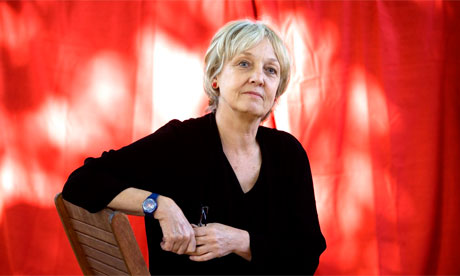
Authors are – give or take the odd nippy sweetie – an affable and amiable bunch whose wrath is more often than not confined largely to character scrapes and battles rather than outwardly shows of rage and anger.
So the recent high-profile campaign by authors such as Andrew Motion, Monica Ali and Antonia Fraser to keep the Public Lending Right (PLR) organisation on Teesside should be noted.
Established by an Act of Parliament in 1979, PLR gives authors the legal right to receive payment from the government each time their books are loaned through the public library system. Under current guidelines, the maximum amount an author can receive in any one year is £6,600, but most receive substantially less.
The maximum amount ensures that the public lending right is widely spread with nearly £5m distributed to poorer writers.
This, undoubtedly, makes sense: in February 2012 PLR made payments totalling £6.5 million to 23,718 authors with just 211 authors receiving the maximum payment and 17,588 awarded between £1 and £99.99. This year's rate per loan is 6.05 pence, down from last year's figure of 6.25 pence. Since its inception in 1979, PLR has distributed over £132m to authors.
As anyone who has been following the debate will know by now, the Department of Culture, Media and Sport has opened consultations on the Government plan to abolish the Public Lending Right organisation which currently services all writers – and many illustrators and translators - in the UK with a staff of just nine located in Stockton-on-Tees.
What is perhaps less well-known, however, is just how angry authors are about this plan which would move the administration of PLR into the British Library, an enormous organisation in its own right and one which has never previously paid out monies.
Given the fact that, at the time of writing, over 23,000 writers, illustrators, photographers, translators and editors who have contributed to books lent out by public libraries in the UK receive PLR payments each year, this is a very serious concern among those who make a living from the written word.
"The reason we're all so suspicious and cross about this is that you cannot do this without spending more money," says Anne Fine, the second Children's Laureate who lives in Barnard Castle, county Durham.
At the present time in a small office in Stockton we have these hard-working people who are civil, exemplary in their behaviour and a beacon to any other organisation.
They deal with thousands of authors a year and are always polite, friendly and incredibly efficient. In all my years of writing they've never made a mistake."
According to campaigners, at the heart of the debate is the pretext that the plan is being undertaken in the name of reducing the number of public bodies and making efficiency savings.
"I could perhaps see the point if [this plan] was going to save money but it's quite clearly not," argues Fine. "It's actually going to cost money when you calculate the cost of the redundancy payments, the cost of interviewing for these posts if the move goes ahead and so on. It just doesn't make any sense.
"It is a proposal based purely on ideology. The DCMS consultation paper says the money for the transfer will not come from PLR income, so where is it going to come from? In the end, it's clear that taxpayers will have to pay dearly for this if it does go ahead."
Another concern among many campaigners is the impact on the staff who work at the Stockton office, with unemployment in the North-east currently at 11.5%, the highest in the country. Fine adds:
Any job lost on Teesside is worse than the loss of a job elsewhere.
It is also feared the plan could jeopardise an income stream that is vital for many authors, myself included. Crime writer Ian Rankin sums up the mood of many UK-based authors. He says:
Stockton works well and always has done in my experience. Authors don't want it moved. Period.
Allan Glen is a writer and journalist. His book, Stuart Adamson – In A Big Country, is published by Polygon. Since 2005 he has made a living writing about music and popular culture for The Guardian, Music Week, The Stage and Live UK. Prior to becoming a full-time writer he was a broadcast journalist with the BBC and worked at The Guardian, Melody Maker, NME and the South China Sunday Morning Post in Hong Kong.

